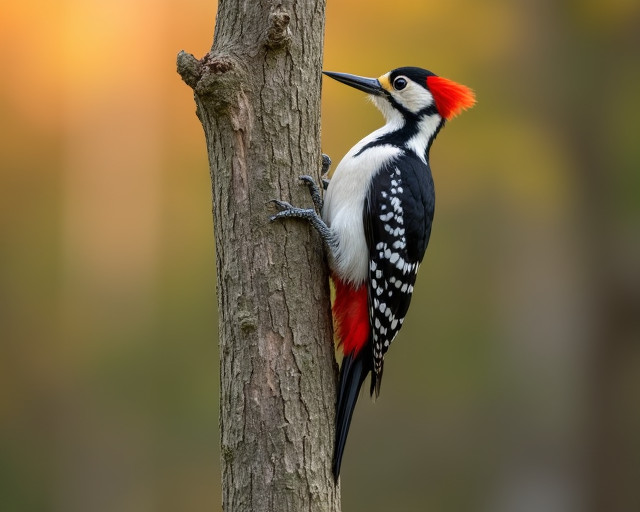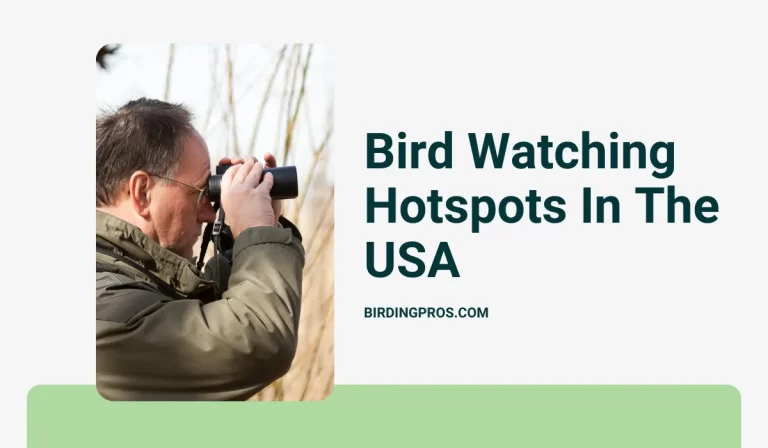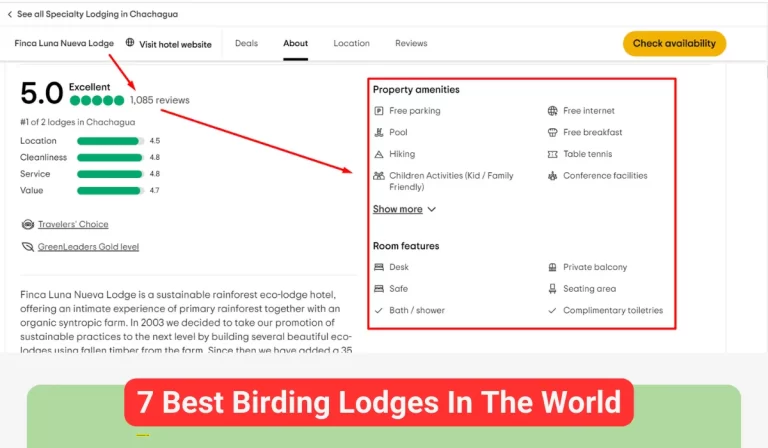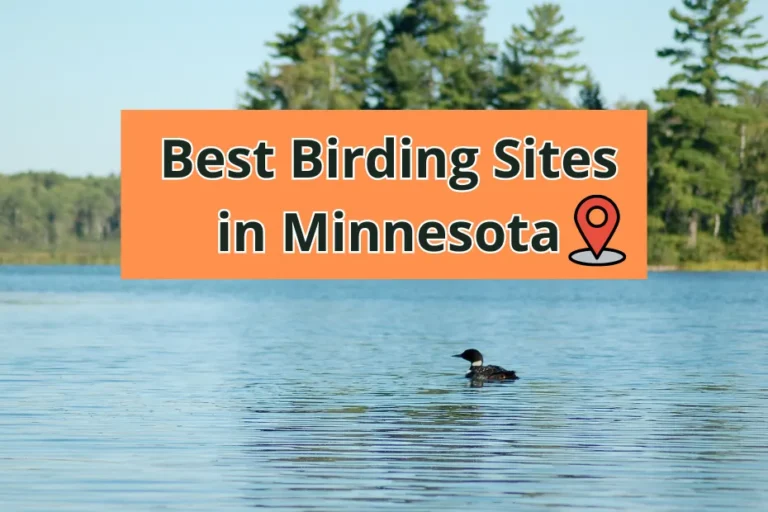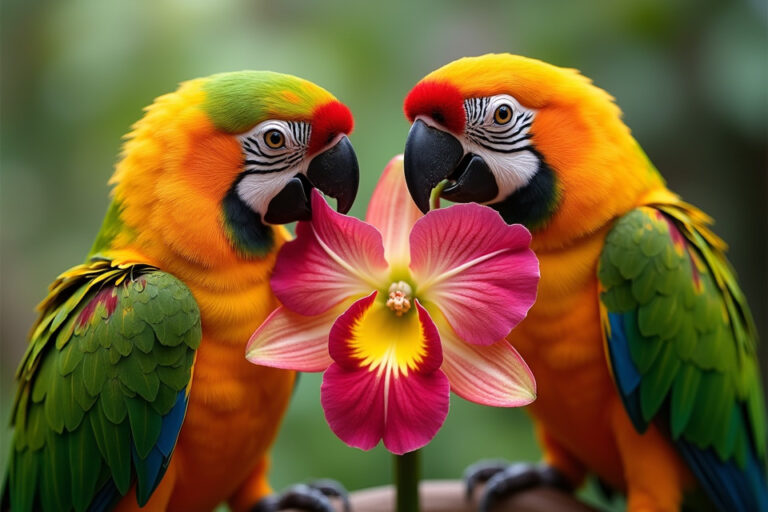Birding in Sweden: A Guide to Exploring Nature and Birds
Sweden is a paradise for bird enthusiasts. With its pristine landscapes and rich biodiversity, the country offers unique opportunities for birdwatching.
In this guide, we’ll cover the best places for birding in Sweden and share tips for setting up a bird feeder to attract species “born in Sweden.”
Whether you’re an experienced birder or a beginner, this guide will help you enjoy Sweden’s incredible birdlife to the fullest.

Table of Contents
Why Birding in Sweden is Special
Birding in Sweden offers an experience like no other. The country’s varied habitats—from coastal regions and islands to dense forests and mountainous areas support a wide range of bird species.
The unique migration patterns here mean that you’ll witness different species throughout the year, making birding in Sweden exciting and dynamic.
The landscapes are also breathtaking, adding a serene, natural backdrop to your birding adventures.
And with so many places to explore, it’s no wonder Sweden has become a hotspot for birdwatchers worldwide.
The Best Places for Birding in Sweden
| 1 | Öland |
| 2 | Falsterbo Peninsula |
| 3 | Store Mosse National Park |
| 4 | Lake Tåkern |
1. Öland
Öland, located on Sweden’s southeastern coast, is one of the best places for birding in Sweden.
This island attracts a large number of migratory birds in spring and autumn, making it perfect for spotting rare species.
The island’s Ottenby Nature Reserve is famous among birdwatchers, offering views of species like the Eurasian crane, red kite, and various seabirds.
The seasonal migration periods are particularly magical as birds flock here from across Europe.
2. Falsterbo Peninsula
In southern Sweden, the Falsterbo Peninsula is renowned for bird migration. Each autumn, hundreds of millions of birds travel from Scandinavia to warmer regions in Africa, passing through Falsterbo.
Bird enthusiasts can spot falcons, eagles, and even storks here. This peninsula has several observation points and a bird observatory, which makes it one of the best places for birding in Sweden.
3. Store Mosse National Park
Store Mosse is Sweden’s largest marshland and an ideal location for spotting wetland birds. The park is home to species such as the grey heron, black stork, and the rare black grouse.
Birdwatching here offers a peaceful experience as you hike along trails and climb lookout towers for better views. Store Mosse’s diverse habitats make it a top destination for those passionate about birding in Sweden.
4. Lake Tåkern
Lake Tåkern, often called Sweden’s best bird lake, is a haven for waterfowl and other bird species.
Located in southern Sweden, this lake is home to a variety of species, including the black-headed gull, great reed warbler, and bearded tit.
Lake Tåkern is a protected area with designated trails and hides, allowing birders to get close to the birds without disturbing them.
Common Birds In Sweden You Can Watch There
Here’s a list of common birds you can watch in Sweden, each with its own unique charm and features:
1. Eurasian Blue Tit
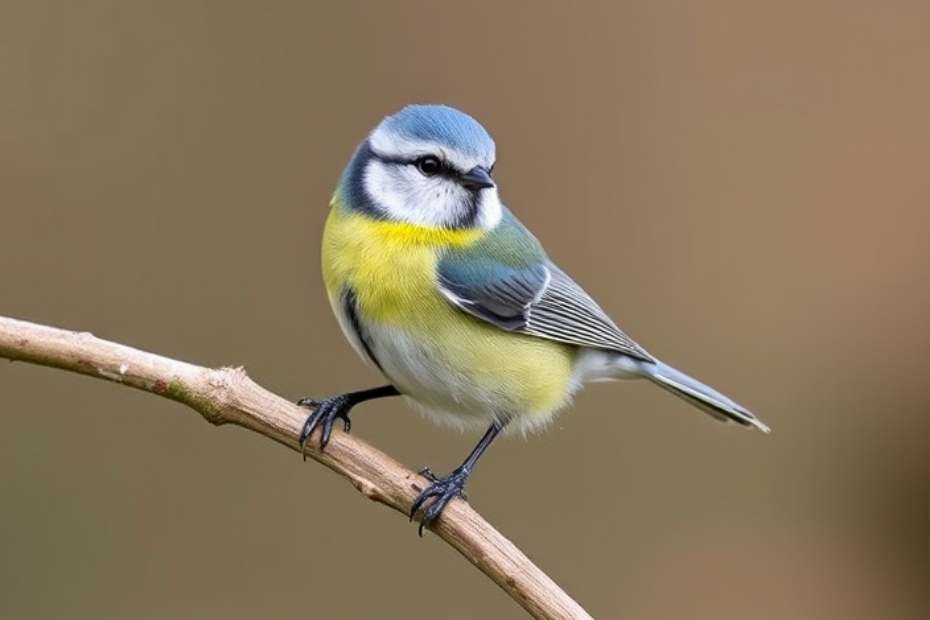
The Eurasian Blue Tit is a small, colorful bird with a blue cap and yellow belly. They are lively and social, often seen at feeders and in wooded areas across Sweden. They’re especially active in winter, visiting feeders for seeds and suet.
2. Great Tit
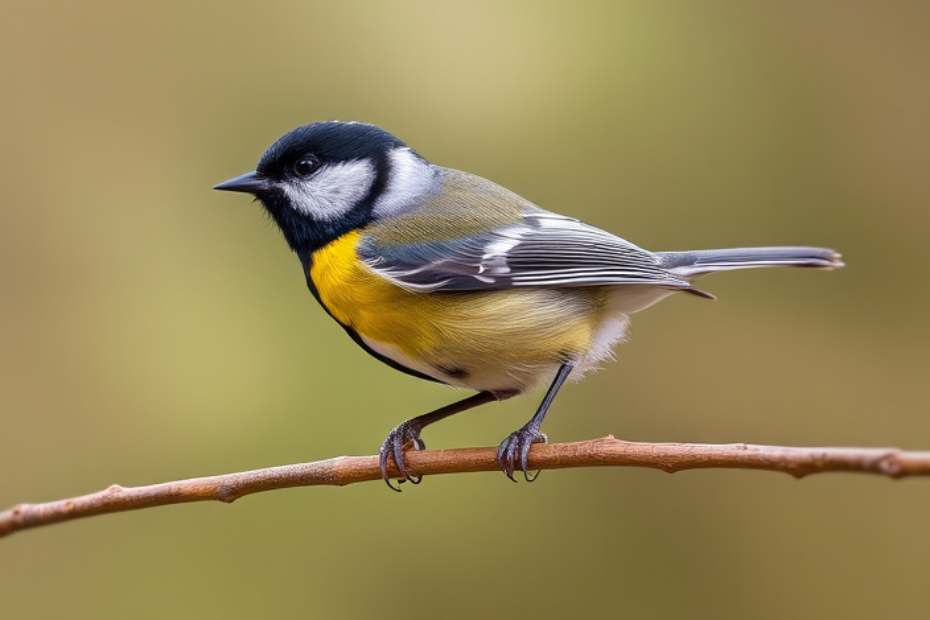
A larger cousin of the blue tit, the Great Tit has a black head with white cheeks and a distinctive yellow belly. These bold birds are easy to spot in gardens, parks, and forests and are known for their loud, varied calls.
3. European Robin
The European Robin is a favorite among birdwatchers, with its bright orange chest and cheerful presence.
These birds are friendly and often found in gardens, forests, and parks. They stay in Sweden year-round, adding color to winter landscapes.
4. Eurasian Nuthatch
With its blue-gray back and black eye stripe, the Eurasian Nuthatch is a fascinating bird that you might spot climbing up and down tree trunks. They can often be seen in forests, gardens, and near feeders where they snack on seeds.
5. Common Blackbird
Known for its beautiful song, the male Common Blackbird has sleek black feathers and a yellow beak. Females are brown and often harder to spot. They’re found in urban areas, parks, and forests and are known for their melodious song at dawn and dusk.
6. House Sparrow
The House Sparrow is a small, social bird with brown and gray plumage. Commonly seen in urban areas, they gather in flocks and can often be found near homes, parks, and city centers across Sweden.
7. European Greenfinch
This olive-green bird has a stout bill and yellow wing patches. The European Greenfinch loves gardens and open woodlands, where it feeds on seeds. It’s a frequent visitor to feeders, especially in winter.
8. Eurasian Magpie
Easily recognizable with its black-and-white plumage and long tail, the Eurasian Magpie is common across Sweden.
They’re intelligent birds often seen in urban areas, gardens, and forests, and are known for their curiosity and loud calls.
9. Fieldfare
A winter visitor in Sweden, the Fieldfare has a gray head, brown back, and speckled breast. It can be found in flocks foraging on berries, especially during colder months. They’re often spotted in open fields, orchards, and parks.
10. Bohemian Waxwing
Known for its beautiful red-tipped wings and a crest on its head, the Bohemian Waxwing is a winter migrant that flocks to Sweden’s gardens and parks in search of berries. This bird is a treat to watch, especially in the colder months when it arrives in large flocks.
Tips for Setting Up a “Born in Sweden” Bird Feeder
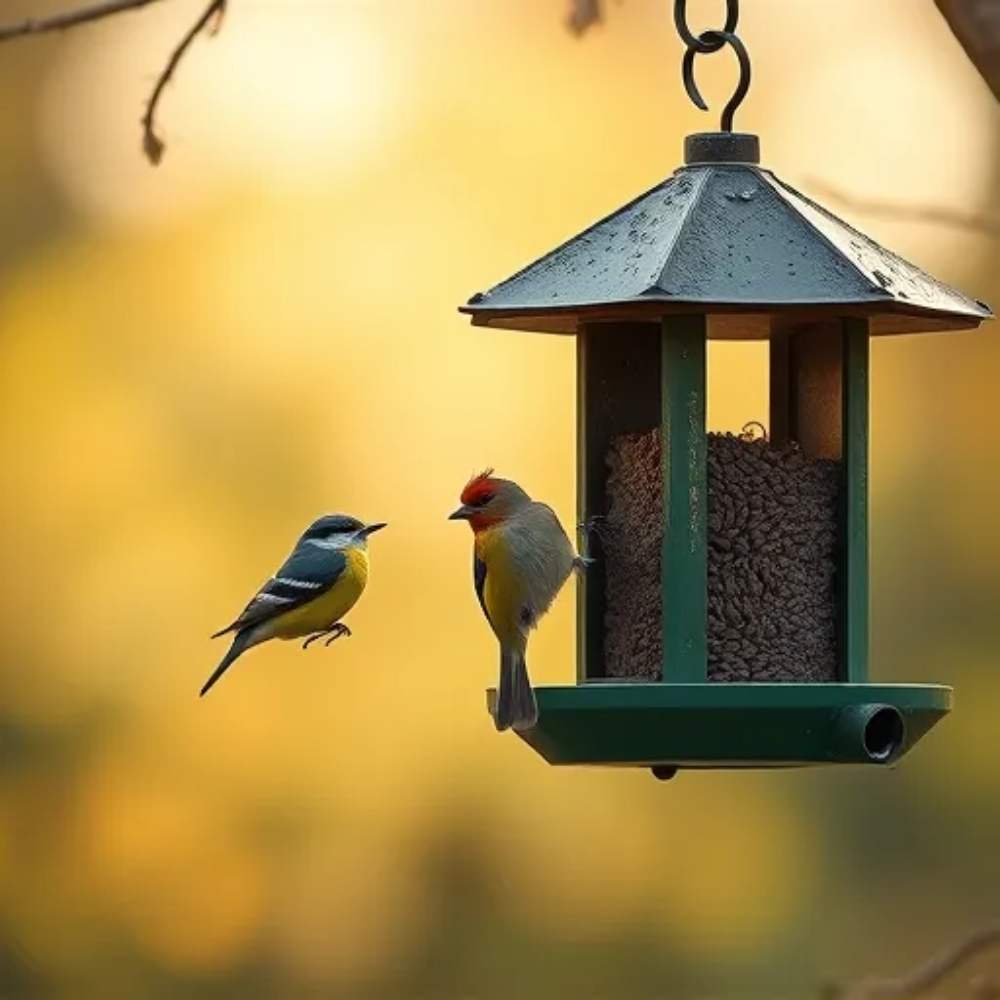
Creating a bird feeder setup that attracts birds born in Sweden is easy and rewarding.
A born in Sweden bird feeder in your backyard will allow you to enjoy watching local birds up close and even learn their habits. Here’s how to make your feeder a popular spot:
Choose the Right Feeder
Different bird species prefer different types of feeders. Tube feeders are suitable for small perching birds, while platform feeders attract larger birds like jays and woodpeckers. Ground feeders are perfect if you want to attract doves and sparrows.
Select the Right Bird Food
Swedish birds are fond of sunflower seeds, peanuts, and suet. In winter, adding high-fat options like suet balls helps the birds survive the cold.
Tailor your food selection to attract species such as the great tit, blue tit, and house sparrow—common birds born in Sweden.
Place Your Feeder Wisely
Set up the feeder where you can easily observe it, such as near a window or in a quiet part of your garden. Ensure the area is safe from predators.
Watching birds born in Sweden from the comfort of your home will allow you to identify various species and their behaviors.
Birding Tips for Beginners
If you’re new to birding, these tips will help you make the most of your experience:
- Bring Binoculars and a Field Guide
A pair of binoculars will allow you to observe birds from a distance without disturbing them. A field guide specific to Sweden will also help you identify different species as you explore the best places for birding in Sweden. - Practice Patience
Birding requires patience and attentiveness. Spend time quietly observing your surroundings, listening for calls, and watching for movement. Many birds are cautious, so moving slowly and staying still will increase your chances of seeing them. - Keep a Bird Journal
Recording your observations in a bird journal is a wonderful way to track the birds you’ve seen, where you saw them, and any unique behaviors. This practice is especially rewarding in a country like Sweden, where you’ll encounter a variety of species throughout the year.
Conclusion
Birding in Sweden is a captivating experience, offering access to beautiful landscapes and diverse bird species.
From the iconic bird migrations in Falsterbo to the serene wetlands of Store Mosse, Sweden has some of the best places for birding.
Setting up a bird feeder at home also provides a way to enjoy the country’s birdlife daily, attracting birds born in Sweden to your own backyard.
So grab your binoculars, choose a location, and embark on a birdwatching adventure that will bring you closer to nature!
Whether you’re just starting or have years of experience, Sweden’s birding scene offers something special for everyone.

